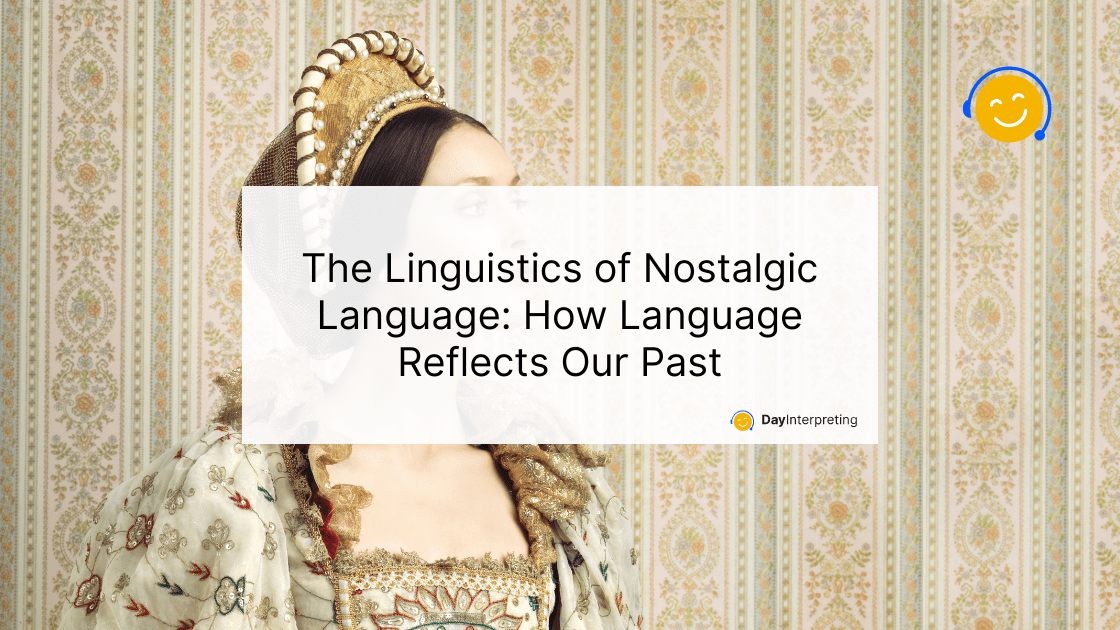Nostalgia is a powerful emotion that takes us back to the good old days. It can be sparked by anything—a familiar smell, a favorite song, or even a word. But have you ever stopped to think about how nostalgic language itself can reflect our past and bring back memories? Let’s dive into the fascinating world of the linguistics of nostalgia and explore how the words we use can transport us back in time.
What Is Nostalgia?
Before we get into how language and nostalgia are connected, let’s talk about what nostalgia actually is. The word “nostalgia” comes from two Greek words: “nostos,” which means “homecoming,” and “algos,” which means “pain” or “ache.” So, nostalgia literally means “the pain of returning home.”
Nostalgia is a mix of happy and sad feelings. It’s that warm, fuzzy feeling you get when you think about the past, mixed with a bit of sadness that those times are gone. It’s like remembering a favorite childhood toy or thinking about a fun summer vacation from years ago. You smile, but you also feel a little tug at your heart because you can’t go back to that exact moment.
How Language Triggers Nostalgia
The Power of Words
Certain words and phrases can instantly transport us back to a specific time in our lives. Think about the slang you used when you were younger. Words like “cool,” “groovy,” or “rad” might remind you of different decades. Each generation has its own unique set of words that reflect the culture and trends of that time.
When you hear these words now, they can bring back memories of your younger self, your friends, and the world you lived in at the time. It’s almost like a secret code that only people from that era can fully understand.
The Magic of Catchphrases
Catchphrases from old TV shows, commercials, or movies can also trigger nostalgia. Phrases like “May the Force be with you” or “I’ll be back” are more than just famous lines—they’re cultural touchstones. Hearing them can bring back memories of when you first watched those movies or shows, who you were with, and how you felt.
These catchphrases can create a sense of shared history among people who experienced the same pop culture moments. When you say or hear them, it’s like you’re part of a special club that remembers the same things.
Language and Memory
How Our Brains Store Words
Our brains are amazing at storing memories, and language plays a big part in that process. Words are like labels we stick on our memories. When we hear or see a word that matches a memory, our brains light up and bring that memory back to life.
For example, if someone mentions a “jukebox,” you might immediately think of a time when you listened to music in a diner or a similar setting. That one word can unlock a whole flood of memories—what songs were playing, who you were with, and even what you were wearing!
The Role of Emotion in Nostalgic Language
Emotions play a huge role in how we remember things. The stronger the emotion attached to a memory, the more likely we are to remember it. This is why nostalgic memories often feel so vivid. They’re not just memories; they’re memories with feelings attached.
Words that evoke strong emotions are more likely to trigger nostalgic memories. For instance, the word “home” can evoke a sense of warmth, safety, and love. When you hear it, you might think of your childhood house, your family, or holiday gatherings. The emotions tied to that word make the memory even stronger.
How Technology Shapes Nostalgic Language
The Internet and Memes
In today’s world, the internet plays a huge role in how we experience nostalgia. Social media platforms like Instagram and TikTok are full of throwback content—photos, videos, and memes that remind us of the past. Words and phrases from old memes or viral videos can trigger a wave of nostalgia for those who remember them.
For example, someone might share a meme with a caption like “only 90s kids will remember,” and it instantly takes you back to your childhood. The internet has made it easier than ever to share and relive memories through language.
Emojis and Nostalgic Language
Even emojis can be nostalgic! The way we used to text or chat online has changed over the years. Older forms of digital communication, like MSN Messenger or AIM, had their own sets of emojis and abbreviations. Seeing these old-school symbols can bring back memories of chatting with friends after school or staying up late to talk online.
Today’s emojis might look different, but the emotions they represent are universal. When we see or use them, they can connect us to different times in our lives when communication looked a little different.
The Future of Nostalgic Language
As time goes on, the words and phrases we use today will one day become the nostalgic triggers for future generations. Just as our parents or grandparents look back fondly on the language of their youth, we too will have words and expressions that take us back to the “good old days.”
It’s fascinating to think that the slang, catchphrases, and even emojis we use now might one day make someone else feel nostalgic. Language is always evolving, and so is nostalgia. The words we choose to use today are shaping the memories of tomorrow.
Nostalgia and language are deeply connected. The words we use can bring back memories of the past, evoking powerful emotions and reminding us of who we were and where we’ve been. Whether it’s a catchy phrase, an old meme, or even just a single word, language has the incredible ability to make us feel nostalgic. So the next time you hear an old catchphrase or see a retro emoji, take a moment to enjoy the trip down memory lane. Who knows? One day, today’s language might just be tomorrow’s nostalgia.





0 Comments